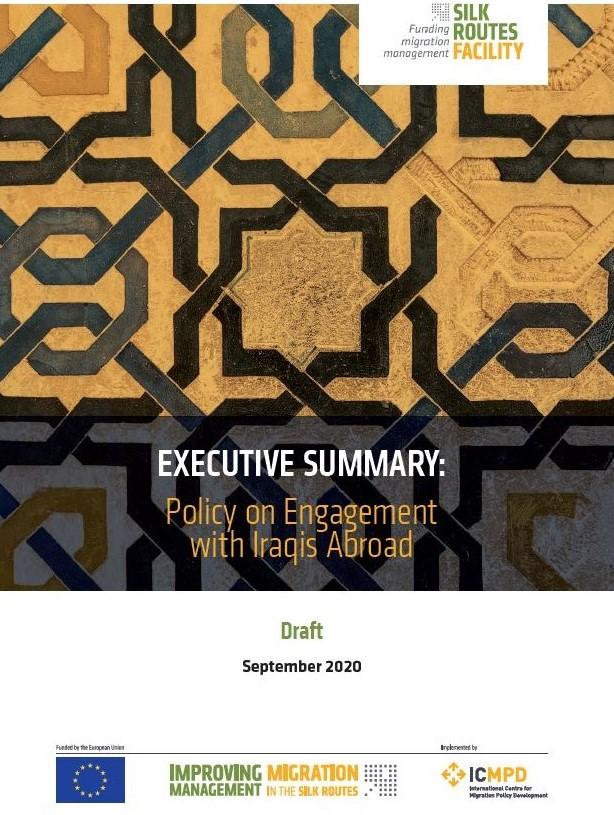
The Silk Routes Facility supports the development of a Policy on Engagement with Iraqis Abroad under the leadership of the Ministry of Migration and Displaced.
The Policy on Engagement with Iraqis Abroad
The Policy aims to foster closer ties between Iraqis abroad and their homeland, in a way that enables investors and people with competencies to participate in the development process in Iraq. It aims to capitalise on these objectives through four key thematic areas: (a) institutional and leadership development, (b) human capital support and investment, (c) financial mobilisation and investment, and (d) state guardianship over Iraqis abroad.
Building trust and institutions
The Policy has been designed through the lens of both Iraqis abroad and the state of Iraq. Actions are geared towards building trust and sharing a common identity (including a sense of co-responsibility) between Iraqis abroad and the state; and building institutions and structures that facilitate sustainable engagement. In doing so, it recognises that members of the Iraqi community abroad are likely to have important skills and capacities that can benefit Iraq, but that additional steps should be taken to ensure that skills are enhanced, connected, and activated.
Human Capital
While several challenges do exist related to skill and education profiles of different Iraqi communities located in different countries of residence bring largely unknown, and skilled persons not easily visible and connected to the programmes or interventions that could use the specialised skill sets Iraqis abroad have, the Policy offers solutions related to developing expert rosters of Iraqis abroad that allow skilled Iraqis to register themselves and be contacted when a specific programme or intervention arises that needs their specific set of skills. Other solutions include supporting the development of professional networks of Iraqis abroad and supporting professional conferences and networking events, which help consolidate the networks of skilled persons and support cooperation between such organisations and stakeholders inside Iraq.
Investments
Furthermore, the Policy focuses on supporting members of the Iraqi community abroad to invest in Iraq. The Policy recognises the multiplicity of challenges that may make investments in Iraq difficult, including lack of information about investment opportunities and the wider business and private sector ecosystem in Iraq. To this end, it offers establishing expatriate investment desks providing services that consolidate information on investment and business opportunities for Iraqis abroad and linking potential investors to investment opportunities in Iraq. Other solutions include support of transnational investment networks, which could include the creation or support of transnational business councils, chambers of commerce, and trade and investment fairs that increase the bilateral connections between Iraqis abroad and investment facilitators in Iraq.
Protection and support
An important, and more embedded, approach contained in the Policy relates to the provision of protection and support services to members of the Iraqi population abroad. It encompasses a larger ethos of care of the state for the population of Iraqis abroad that emphasises the development of a relationship based on mutual trust and cooperation. It responds to the deficit of trust between Iraqis abroad and the government of Iraq and the existence of population-specific vulnerabilities that limit transnational engagement possibilities.
The Policy proposes creation of emigrant support systems and advocacy for Iraqis abroad. These solutions relate to understanding the vulnerabilities of specific Iraqi populations abroad, and to assessing to what extent those vulnerabilities are addressed within Iraq’s governance framework for emigration management.
Iraqis abroad possess various forms of diasporic capital that can help in the country’s development. The Policy recognises that the diversity of the Iraqi population abroad is a powerful advantage that can be harnessed with the design of actions and programmes that accommodate the needs and interests of this diverse population.
The Policy has received the support of relevant national institutions, and awaits endorsement by Iraq’s General Secretariat of Council of Ministers.
Latest NEWS on STA activities in Iraq